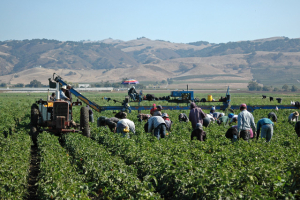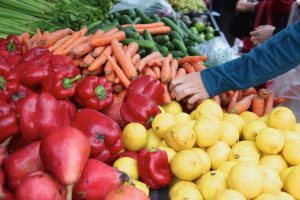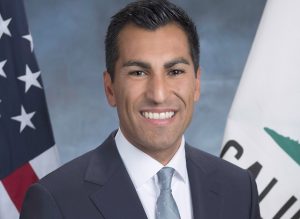San Francisco Urban-Rural Roundtable 3/31
March 31, 2009 Michael R. Dimock
These are Michael's opening remarks to the San Francisco Urban-Rural Roundtable , a collaboration of urban and rural leaders charged with forming a market development and food access plan for the city and its rural neighbors and to further develop the concept of regional foodsheds. We plan to publish the final recommendation document in the coming weeks.
Good morning Mayor Newsom, Secretary Kawamura, distinguished participants of the San Francisco Urban-Rural Roundtable, and our welcome guests.
This Roundtable's work is groundbreaking. Other big cities have been focused on developing better food policy for several years now. But none of them have chosen, like San Francisco, to improve food system policy through dialog with those at the root of the solution: the rural people who produce the food and the organizations that support them. Urban and rural must be partners to resolve the food system dilemmas that we currently face.
In the last three weeks, I have been involved in policy discussions in Washington DC with leaders from the Executive Branch and Congress, including USDA Secretary Tom Vilsack. I have also attended two conferences, one involving the world's largest food and farming companies, and the other the nation's land grant universities. These meetings have been encouraging and here is my assessment of the current context:
1) Perhaps inspired by San Francisco, the Whitehouse and State House have signaled, by the new gardens being planted on their grounds, that food and agriculture are on the nation's agenda in a new and pronounced way.
2) At the federal level, policymakers are focused on serious reform of policy that, if accomplished, will greatly assist the move to a sustainable food system.
Policymakers at United States Department of Agriculture, Health and Human Services, Environmental Protection Agency, and in Congress are discussing:
- the greening of the Farm Bill's Title I, which would tie continued subsidies to more stewardship on the part of farmers
- development of regional food systems
- increased funding for clean up of brown fields sites so they can be used for food oriented retail and food production
- nutrition, not calories, as the goal of federal feeding programs
- a vast increases in the use of EBT (Electronic Benefit Transfer) cards and WIC (Women and Infant Children) vouchers at farmers markets.
3) At the State level, we are also looking at real commitment to new policy:
- Secretary Kawamura's AgVision process will be working with the Roots of Change funded California Roundtable on Agriculture and Environment this year to develop a policy agenda for the State.
- The recently revamped State Senate Committee on Food and Agriculture has declared its intent to form new policy around good food access, sustainable farming, food safety, and animal welfare.
4) In the business sector, the world's largest food companies are deeply engaged in work to make food production sustainable. In the opening remarks of the Ag Revolution Conference held the week before last, which involved McDonald's, Archer Daniels Midland, General Mills, Sodexo, the major commodity crop organizations, and others, a senior Executive of Unilever declared that we can no longer use 10 to 14 calories of fossil fuel energy to produce 1 calorie of food. It is not sustainable, he said, and the system must change quickly. No one there disagreed.
5) In academe, researchers from across the nation, hosted last week by Dr. Tom Tomich, Director of the Agriculture Sustainability Institute at UC Davis, declared themselves ready and willing to support stakeholder-initiated and action-oriented projects that seek to rapidly scale up sustainable systems.
In short, as never before, government, business and science are aligning with those seeking a sustainable food system, meaning a new national consensus is rapidly emerging around food and agriculture.
I believe the Roundtable's five recommendations will allow this City and this region to lead the way, and to leverage the emerging State and Federal commitment to change.
As you know, on October 22, last year, the Roundtable began formulating what has become this final draft document. We met at UC Davis with over 40 stakeholders from City and Country, where Mayor Newsom gave us marching orders. Participants broke into four committees to brainstorm strategies. The Coordinating Team honed the resulting material and created a briefing book sent to participants in mid December to prepare them for the January 7 and 8 sessions. In those dialogs, the Committees honed and prioritized. The Coordinating Team used that work to create the preliminary draft recommendations sent to participants early this month. Many people in this room helped to provide detail and improvements that generated the document we will review and hone one last time today.
Let me quickly mention the impact of the economic downturn. When we began to plan this effort last summer, the world looked very different and the spectrum of potential action was broader. Clearly, the State and City budget crises, have hobbled some of the more ambitious ideas around direct City investment in rural and urban enterprises that would serve City needs. However, the tempering of our original ambitions may not be so bad because as we saw with the initial implementation of the federal TARP program last fall, a rapid move by government can undermine vital public support. It appears to me that those who have so far benefitted from the stimulus efforts are not the institutions best poised to lead us into the future.
Thus, I would suggest that the tight State and City budgets help to ensure a more thorough alignment of interests and a careful crafting of action. But, in this fiscal climate, in order to ensure fundamental change, our actions must elevate food and agriculture on the list of competing priorities. I believe the Roundtable's recommendations will do that.
The stakeholders seeking a better food system need Mayor Newsom's bully pulpit, and his policymaking prowess to place food and farming issues in front of the public in language that clarifies how improving food and agriculture will help resolve the economic, healthcare, climate, and energy challenges of our time, and thereby, lift the State's quality of life. And based on his commitment to and participation in the Roundtable process, I am confident Mayor Newsom will do what we need done.
In closing, I want to thank the Roundtable participants and the Coordinating Team for your dedication to the Roundtable's work over the last five months. And thank you Mayor Newsom for inviting this Roundtable to serve you, the City of San Francisco, and those in the surrounding rural regions who produce our food.
Click here for an overview of the goals and players in the Urban-Rural Roundtable.
Click here to read "S.F. Food Policy Heading in Healthy Direction." This article from November gives a nice overview of the road to a city food policy.
Click here to read "S.F.'s Scraps Bring Joy to Area Farmers. " This article from the San Francisco Chronicle that highlights one example of an interrelationship that benefits both city and country.



